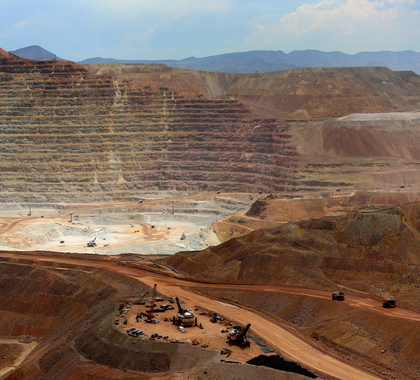In a setback for environmental groups trying to restrict mining in the United States, the U.S. Court of Appeals for the District of Columbia affirmed a decision by the U.S. Environmental Protection Agency (EPA) not to impose new national financial assurance requirements on the hardrock mining industry.
Hardrock mining refers to the underground extraction of hard minerals containing valuable metals such as copper, gold, iron, silver, tin, and zinc.
The case, Idaho Conservation League et. al. v. Wheeler, stems from a December 2017 EPA decision not to impose additional financial assurance obligations on the industry under the 1980 Comprehensive Environmental Response, Compensation, and Liability Act, also known as Superfund.
The Idaho Conservation League, Earthjustice, and other activist groups filed a lawsuit challenging EPA’s decision.
Judge Karen Henderson, writing on July 19 for a unanimous three-judge panel of the D.C. Circuit Court, concluded environmental groups had misinterpreted the statute.
Concerns about abandoned mine sites do not “undermine the reasonableness of the EPA’s decision not to promulgate additional financial responsibility requirements for the entire hardrock mining industry,” Henderson wrote.
Reverses Obama Policy
In many respects, the case reflects the transformation at the EPA from the administration of President Barack Obama to that of President Donald Trump. Environmentalists have long sought to mandate strict national financial assurance requirements on a range of industries whose activities could conceivably cause environmental harm, and in a settlement reached during the Obama administration, EPA agreed to consider financial assurance requirements across a broad range of industries, beginning with hardrock mining.
Trump’s first EPA Administrator, Scott Pruitt, reversed course in 2018, saying the requirements were “unnecessary” and “would impose an undue burden on this important sector of the American economy and rural America.” Pruitt’s successor, Andrew Wheeler, requested the Justice Department defend this finding in the court case.
The Appeals Court ruled EPA’s decision not to impose national financial responsibility requirements on the hardrock mining industry was reasonable.
“We defer to the EPA’s interpretation that it should set financial assurance regulations based on financial risks, not risks to health and the environment,” Henderson’s decision states.
‘EPA Used Common Sense’
Because other state and federal laws already require mines to be financially capable of covering potential liabilities, additional federal requirements are unnecessary, says Hal Quinn, president of the National Mining Association.
“We welcome the court’s decision that hardrock mines are already subject to significant financial assurance requirements under other federal and state laws,” said Quinn in a press statement. “EPA used common sense in its final determination, and we are pleased the court found the agency’s reasoning compelling.”
Superfund already imposes unjustified financial burdens on too many industries, and adding the hardrock mining industry to the government’s hit list would have been bad for the economy, says Craig Rucker, president of the Committee for a Constructive Tomorrow (CFACT).
“Superfund law is onerous enough as it is,” said Rucker. “Adding completely unnecessary financial liability requirements, as the plaintiffs sought, would have hamstrung an industry absolutely essential to the nation’s future.”
Bonner R. Cohen, Ph.D. ([email protected]) is a senior fellow at the National Center for Public Policy Research and a senior policy analyst with CFACT.





